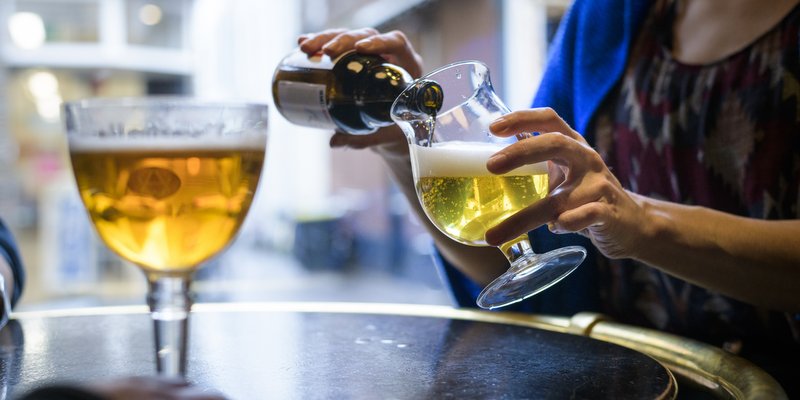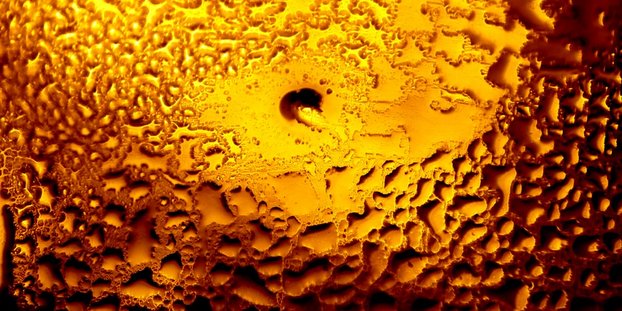
Consumers are increasingly sustainability-conscious and are choosing products that align with these values. In fact, a 2020 global survey revealed that 50% of people are looking to make more environmentally conscious purchasing choices. This growing environmental concern means that sustainably produced beer is rapidly rising to the top of the consumer agenda.
But there are a huge number of considerations that brewers must account for – from resource efficiency to production profitability – when moving toward more sustainable brewing methods. So the question is, how can brewers meet the challenge of making their beers as sustainable as possible, while ensuring the flavor, ingredients, aroma and even the cost that consumers expect, remain the same?
Climate change impacts
Climate change is affecting agriculture around the world. Unseasonable heavy rainfalls and droughts are affecting the yield of brewing crops such as corn, rice and barley. Barley is a particularly popular crop among European brewers due to the traditionally favorable climate. However, research shows that the harvest of all dominant (non-tropical) crops has decreased by over 6% in recent years, with the situation expected to continue declining into the foreseeable future.
These weather extremes are also likely to impact raw material quality. The change in climate has seen barley beginning to contain higher levels of protein, resulting in a beer that is more sensitive to haze formation, less stable and has a shorter shelf life. A decrease in raw material quality can also reduce the extract yield of barley. This may lead to malted barley that contains less starch that can be converted into the required amount of fermentable sugars needed to produce beer with the desired flavor and alcohol levels.
It’s also no secret that the brewing industry is, in general, an extremely resource-heavy enterprise.
In the UK, the energy demand in beer production alone translates to over 49,600 terajoules (0.56% of the UK’s total energy use), 2.16 metric tons of CO2 emissions (0.85% of the UK’s total emissions), and the consumption of 1.85 billion hectoliters of water (5.3% of the UK’s total demand).
The conventional stabilization process, for example, requires huge amounts of energy as brewers add silica gel to remove proteins, and polyvinylpolypyrrolidone (PVPP) to eliminate polyphenols, using an expensive deep cooling step and additional CAPEX to remove the protein-polyphenol complexes.
A catalyst to success
Enter enzymes – biological catalysts that can help produce beer faster, more cost-effectively, and ultimately, more sustainably. Typically used in a liquid state and in small amounts, enzymes can be added at different stages of the brewing process, depending on the application and intended effect. After performing their function, they are no longer active in the end-product.
Liquid fungal proline-specific endo-protease enzymes are paving the way in speeding up the brewing process, saving both energy and water.
This enzyme can prevent chill haze by breaking down the specific haze sensitive proteins in beer so brewers can skip the deep cooling step in the beer stabilization and clarification process. These enzymes also prevent beer wastage, as they eliminate the need for powdered stabilization aids, such as PVPP or silica gel, which must be filtered out of the beer further down the line and can result in a 0.5% beer loss. Removing the need for these stabilization aids also reduces the risk of oxygen introduction and supports first-time-right results.
Water consumption can also be reduced by up to 1% through the implementation of liquid fungal proline-specific endo-proteases. This achieves energy cost savings of up to EUR 70,000 per one million hectoliters of beer produced, as well as cutting the carbon footprint of brewing operations by between 5 and 6%. When added during the fermentation stage of brewing, liquid fungal proline-specific endo-protease enzymes are easy to implement into any stabilization setup, with no need to change the existing brewing process or equipment, offering all-important money saving benefits.
Brewing enzymes also allow for 100% barley brewing, or adjunct brewing, which is the switch from using malted to un-malted brewing grains, allowing brewers to use precious raw materials more efficiently.
Adjunct brewing solutions provide the enzymes that are usually developed by malting barley and are needed to complement the enzymes − mainly ẞ-amylases and exo-peptidases − naturally present in the barley crop. As malting is an extremely water and energy-intensive process, accounting for 10-15% of the carbon footprint of beer, when brewing with 100% barley, the carbon footprint savings typically amount to over 60 kilograms of CO2 per ton of barley. Adjunct brewing allows for a significant increase in brewing capacity, as much as 25%, while also reducing mash cycle time by up to 20% – making it both a sustainable and economical solution.
Leaning on local sources
Adjunct brewing also allows brewers to use a variety of more locally sourced raw materials, rather than relying on crops which may need to be imported. This flexibility in recipe formulation allows brewers to take another step towards reducing their carbon footprint.
This creates additional appeal to the 39% of consumers who stated their interest in buying beer produced from locally sourced raw materials – a preference largely stimulated by consumer desire to reduce their carbon footprint. If all beer production in the U.S. transferred to using adjunct brewing processes, 753 million kilograms of CO2 could be saved, the equivalent to 768,000 trips around the world or taking 161 million cars off the road.
Adjunct brewing has the added benefit of not affecting taste or texture profiles – a crucial element for the 22% of consumers worldwide who value flavor above all else.
Looking ahead
Implementing sustainable brewing practices is more important than ever and enzymes can be a strong asset for any brewer looking to achieve this. Enzymes are versatile and easy to use, making them an ideal choice for brewers to conveniently achieve a wide variety of contemporary, yet sustainably produced, beer profiles. And enzymes, produced via a natural fermentation process, allow today’s brewing industry to nurture strong consumer appeal and also uphold the efficiency, profitability and viability of their operations now and for years to come.
Selecting the best-suited brewing solutions is critical. An experienced partner that can supply end-to-end, high-quality brewing solutions and provide in-depth technical and application support along every step of the way, can help brewers choose the right product and implement it successfully. Head here for more information about the capabilities of brewing enzymes – including those in DSM’s extensive brewing solutions portfolio.
Theo Wijsman, is a Product Application Expert Beverage for DSM Food Specialties.






Leave a Reply
You must be logged in to post a comment.